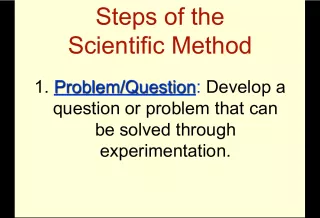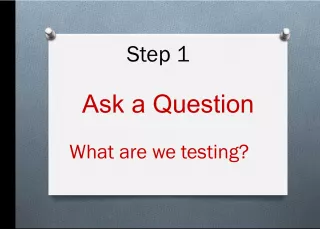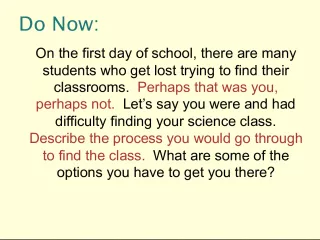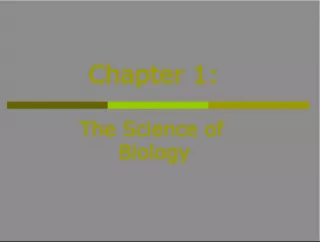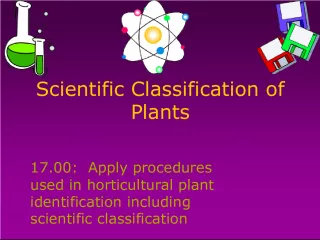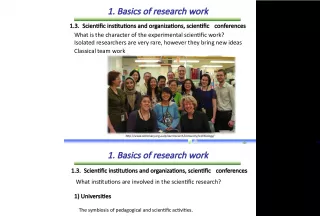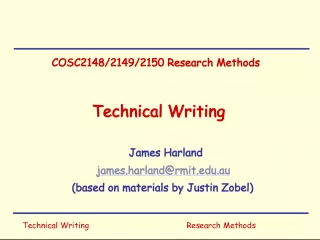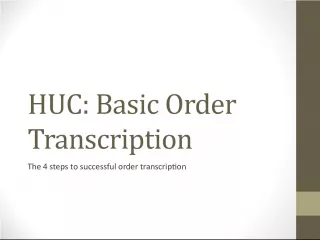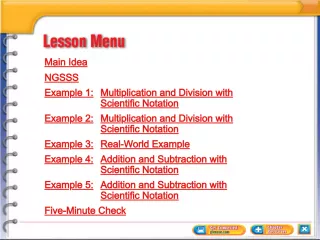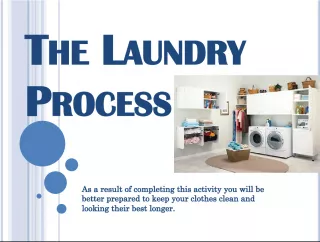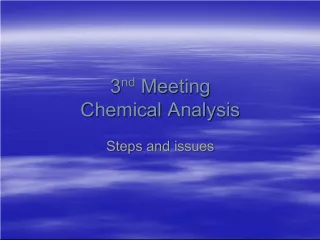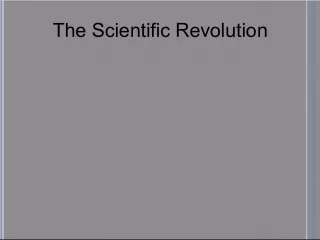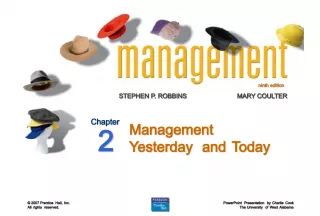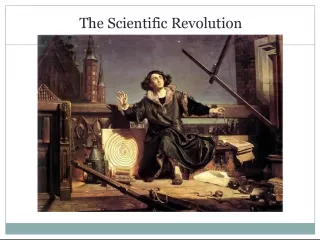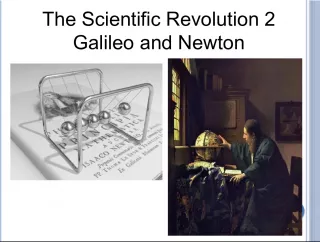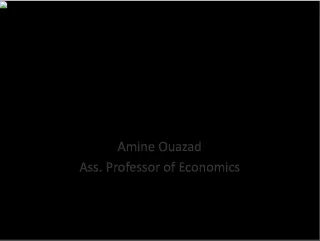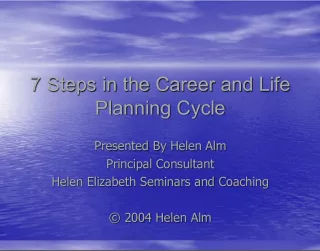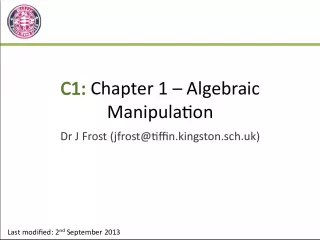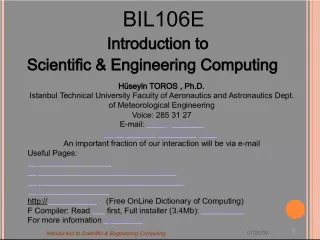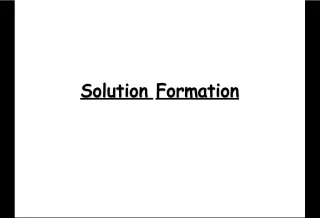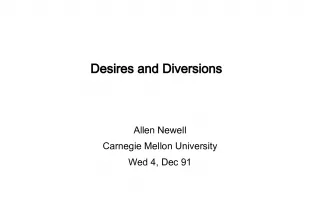The Steps of the Scientific Method
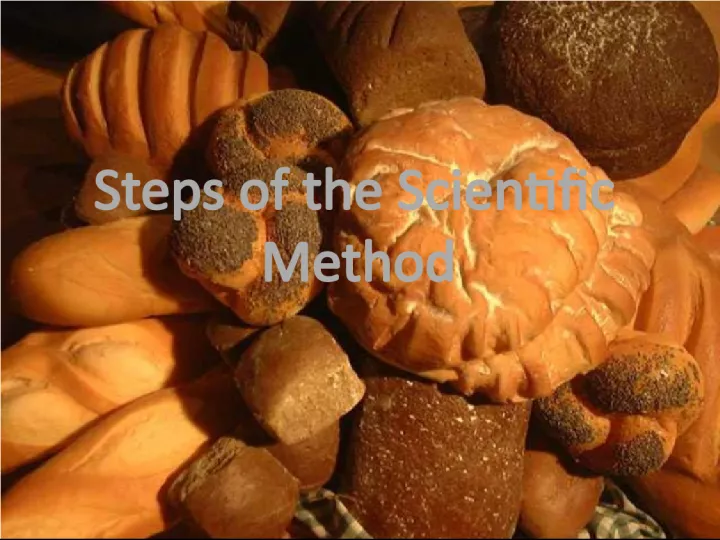

The scientific method is a procedure used to investigate a natural occurrence. This article explains the different steps involved in the scientific method, including identifying a problem or question, making observations, conducting research, form
- Uploaded on | 2 Views
-
 lyuboslava21
lyuboslava21
About The Steps of the Scientific Method
PowerPoint presentation about 'The Steps of the Scientific Method'. This presentation describes the topic on The scientific method is a procedure used to investigate a natural occurrence. This article explains the different steps involved in the scientific method, including identifying a problem or question, making observations, conducting research, form. The key topics included in this slideshow are . Download this presentation absolutely free.
Presentation Transcript
Slide1Steps of the ScientificMethod
Slide2What is the scientific method?The Scientific Method involves a series of steps that are used to investigate a natural occurrence. We will study the steps of the scientific method and eventually design our own experiments.
Slide3Steps of the Scientific MethodProblem/Question Observation/Research Formulate a Hypothesis Experiment Collect and Analyze Results Conclusion Communicate the Results
Slide4Steps of the Scientific Method1. Problem/Question: Develop a question or problem that can be solved through experimentation.
Slide5Steps of the Scientific MethodJohn watches his Grandma bake bread. Grandma explains that yeast eats sugar in the bread dough and releases gas which makes the bread rise. John wonders – Will the amount of sugar in the recipe affect the size of a bread loaf?
Slide6Steps of the Scientific Method2. Observation/Research 2. Observation/Research : Make observations and research your topic of interest.
Slide7•John researches how baking and fermentation works. He keeps all of his research information in a journal.
Slide8Steps of the Scientific Method3. Formulate a Hypothesis 3. Formulate a Hypothesis : Predict a possible answer to the problem or question.
Slide9Hypothesis The hypothesis is an educated guess about the relationship between the independent and dependent variables. If IV then DV .
Slide10What are IV and DV?• Independent Variable – the factor that is intentionally manipulated or changed in an experiment. Valid experiments have only one independent variable. • Dependent Variable – the factor that may change as a result of changes made in the independent variable. The dependent variable must be measureable.
Slide11After talking with his teacher and conductingfurther research, he comes up with a hypothesis. “If more sugar is added, then the bread will rise higher.”
Slide12Steps to the Scientific Method4. Experiment 4. Experiment : Develop and follow a procedure . Include a detailed materials list. The outcome must be measurable (quantifiable).
Slide13Control Group
Slide14Control GroupThe control group serves as the standard of comparison in an experiment. The control group may be a “no treatment” group. All experiments should have a control group.
Slide15ConstantsThe constants in an experiment are all the factors that the experimenter attempts to keep the same. What are the constants in the bread experiment?
Slide16TrialsTrials refer to replicate groups that are exposed to the same conditions in an experiment. There must be multiple trials of an experiment for it to be considered valid.
Slide17Steps to the Scientific Method5. Collect and Analyze Results 5. Collect and Analyze Results : Modify the procedure if needed. Confirm the results by retesting. Include tables, graphs, and photographs.
Slide18Size of Baked Bread (LxWxH) cm3 Amt. of Sugar (g.) 1 2 3 Average Average Size (cm 3 ) Size (cm 3 ) 50 1296 1440 1296 1344 60 1404 1296 1440 1380 70 1638 1638 1560 1612 80 1404 1296 1296 1332 90 1080 1200 972 1084 Size of Bread Loaf (cm 3 ) Size of Bread Loaf (cm 3 ) Trials Trials Control group
Slide19Steps to the Scientific Method6. Conclusion 6. Conclusion : Include a statement that accepts or rejects the hypothesis. Make recommendations for further study and possible improvements to the procedure.
Slide20Steps to the Scientific Method7. Communicate the Results 7. Communicate the Results : Be prepared to present the project to an audience. Expect questions from the audience.

